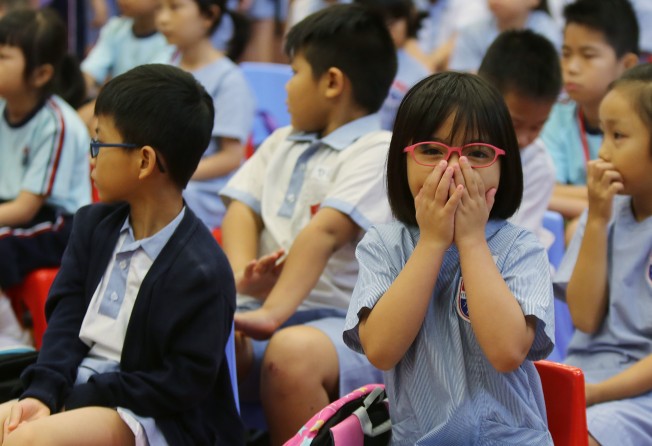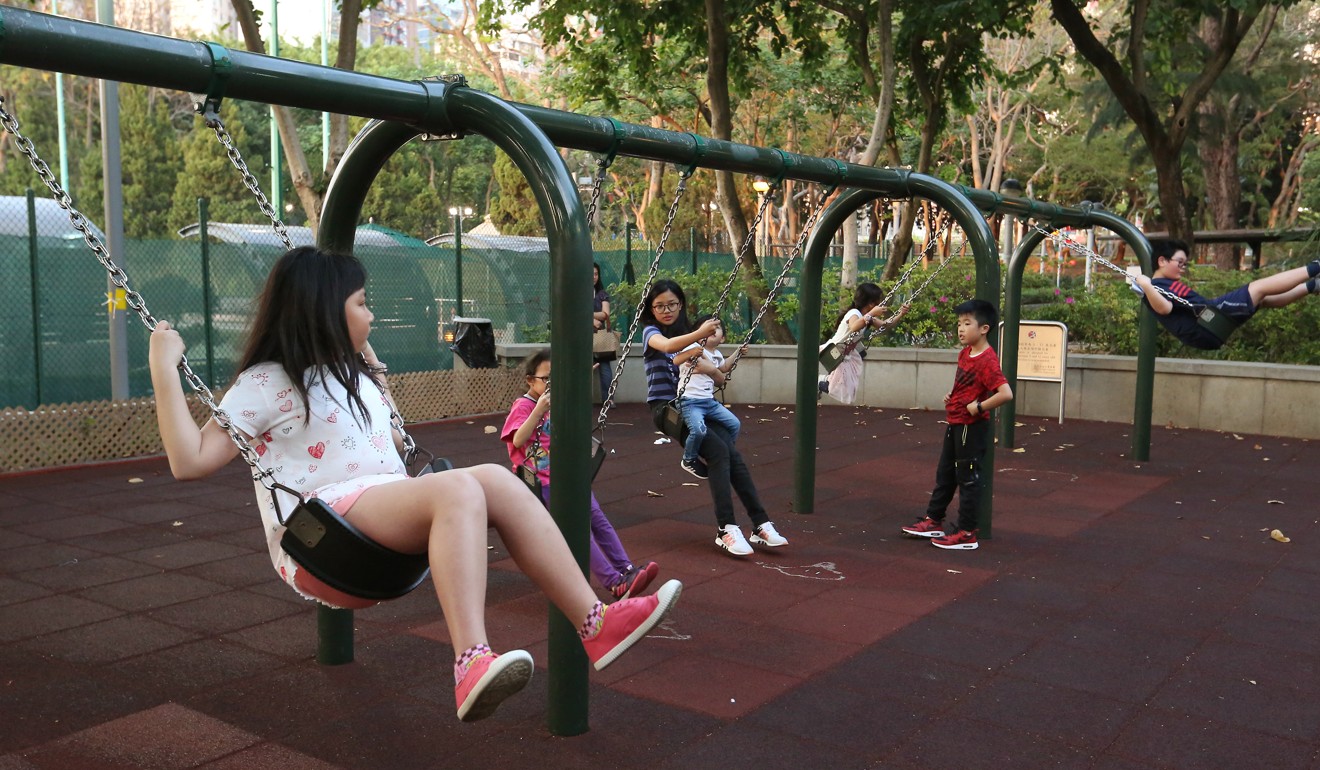Hong Kong nine-year-olds are getting less happy: study
Study finds biggest drop among all surveyed age groups in Primary Four, with one expert blaming an excess of academic pressure from parents

There has a been a significant drop in the happiness of nine-year-olds in Hong Kong, a study has found, with one expert questioning whether parents are applying academic pressure at a younger age than before.
The Hong Kong Children Happiness Index for the 2017/18 academic year showed a drop of nearly 5 per cent year on year among pupils in Primary Four, the biggest drop of all age groups surveyed.
Professor Ho Lok-sang, director of the Polling and Public Opinion Centre at Chu Hai College of Higher Education, called the drop “unusual” as the previous study had shown younger children to be happier.
“Typically, as kids grow older, their happiness level tends to drop because of more pressure in senior classes and also the influence of puberty,” Ho, who conducted the study, said.
“But, this figure implies parents are already putting much pressure on children, starting from lower grades.
“Some parents might not have previously been as demanding. But talk about winning at the starting line has pushed those parents to also become more competitive.”
The index polled 1,744 Primary Four to Six pupils and 1,767 Form One to Five pupils from 19 local public schools, between April and June this year. Pupils ranked their happiness on a scale of 0 to 10.
The index for Primary Four students dropped from 7.3 in the last school year to 6.94 this year, down by 4.93 per cent.
The overall index for children aged between 8 and 14 years old was 6.72, a slight drop from the last study’s 6.75 but significantly higher than 6.5 in 2015/16. Year-on-year calculations excluded the results from Form Four and Five students, which were being included for the first time.
While one part of the study found that pressure from studies and extracurricular activities had risen to almost unprecedented highs, the overall happiness index had only got a little lower.

Ho attributed this to the progress of implementing more life education in schools, including talks, visits, role play and other creative activities.
He said: “Through these means, schools cultivate children’s mental capital, namely love, insight, fortitude and engagement. Children are better prepared to face pressure and challenges from disappointment... And they tend to be happier.”
Ho added parents played a key role in encouraging children to persevere and focus on discovering their potential rather than simply “outperforming others”.
Emily Yuen, a 40-year-old civil servant with two children, said society was to blame for the pressure on young pupils.
“Kids are required to prepare for preschool interviews even when they are going to kindergarten. Talks on how to train your kids for interviews are on many websites and social media. If you are not following, like myself, you would feel the pressure very easily,” said Yuen, whose elder son had just turned 10.
Yuen said her son had complained about the increasing amount of homework since he entered Primary Four. She added that dividing pupils into elite classes also put a strain on them because “teachers would emphasise that they should try to perform well academically”.
But Yuen was doubtful whether parents were able to effectively teach their children about life education, given that they themselves also faced a tremendous amount of pressure.